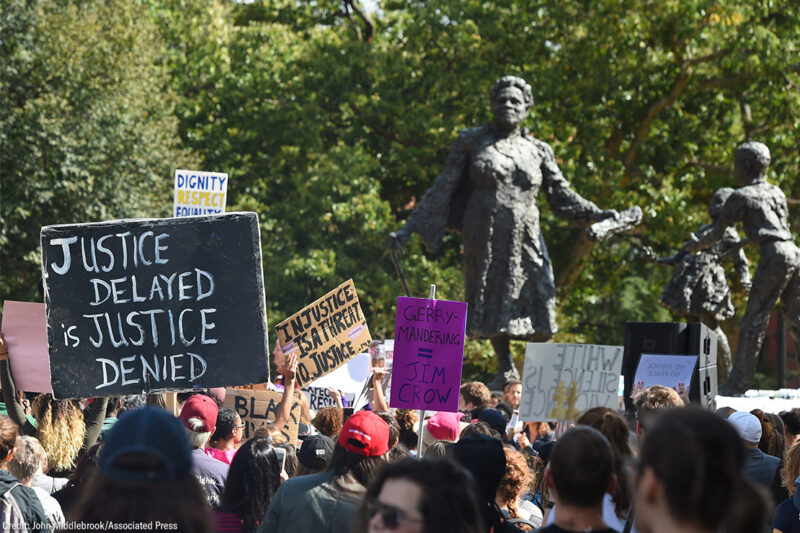The Black Women Behind the Ongoing Fight for Suffrage


The 19th Amendment inked women’s suffrage into American history, a culminating moment in an effort to win political power. But as the 100th anniversary of its ratification fast approaches, it's essential to reflect on who the 19th Amendment excluded in practice if not on paper, and what the popular historical record of this movement leaves out.
"Black women know as 1920 unfolds that many of them are still going to be disenfranchised," professor and author Martha S. Jones tells At Liberty. "That's not a secret. That's an open premise of the 19th Amendment.
Jones joined the podcast this week to discuss how the history of voting rights has led us to this moment. She is the Society of Black Alumni Presidential Professor and a professor of history at Johns Hopkins University. Jones is also the author of the new book, Vanguard: How Black Women Broke Barriers, Won the Vote, and Insisted on Equality for All.
The ordained heroes of women’s suffrage — such as Elizabeth Cady Stanton, Susan B. Anthony, and later Alice Paul — often tossed out the leadership and movement-building of Black women. The absence of those voices from the popular historical record has obscured the centuries-long role that Black women have played, and continue to play, in expanding voting rights for all. In writing a book that attempts to capture "200 years of voting rights history in the U.S. from the perspective of African American women," Jones says, she realized "that there really is no golden age of voting rights in the United States."
"What was remarkable and important for me to discover was that the history I was telling lives inside many of the women whom we recognize as of our own movement, like Stacey Abrams or Ayanna Pressley," says Jones. "When I heard Stacey Abrams crediting Shirley Chisholm, Barbara Jordan, Sharon Pratt Kelly, Sojourner Truth, and Harriet Tubman as helping to shape her political consciousness in her imagination, I realized there really was a story to tell."




